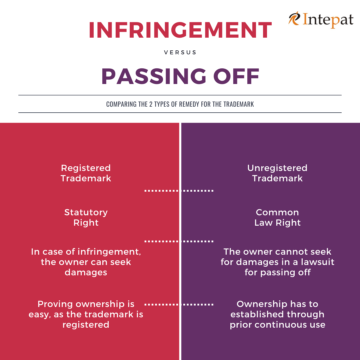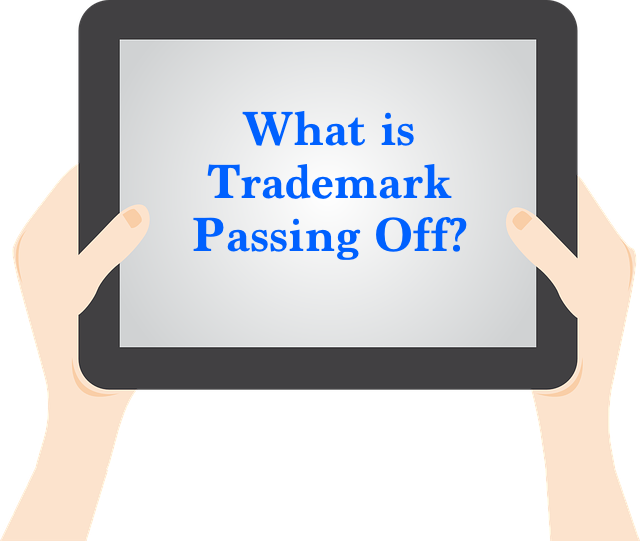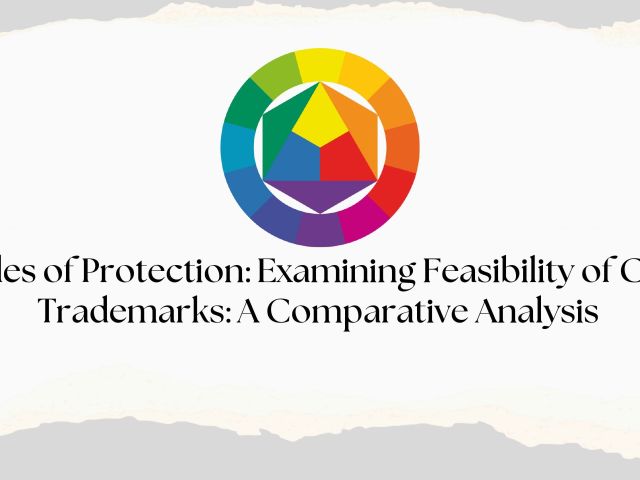- Passing off is a remedy for the enforcement of unregistered trademark rights. The law of passing off prevents one trader from misrepresenting goods or services as goods and services of another. It also contains a trader from holding out his goods or services as having some association or connection with another when this is not true. It is important to note that passing off does not confer monopoly rights to any names or marks, and it does not recognize them as property. This is because passing off protects unregistered trademarks. As such, it is not a statutory remedy. It is a common law remedy.
Elements of passing off:
The following elements need to be proved in a suit for passing off:
i) Goodwill owned by the proprietor of the unregistered mark
ii) Misrepresentation
iii) Damage to the goodwill
Goodwill owned by a trader:
The plaintiff has the burden of proving goodwill in its goods or services.
Misrepresentation:
The plaintiff must show misrepresentation or false intention on the defendant’s part. There must be some connection between the plaintiff’s and the defendant’s goods, services, or trade. There must also be a likelihood of actual deception or confusion among the public.
Damage to goodwill:
There may be a loss or diversion of trade or dilution of goodwill. There must be an honest and tangible probability of damage. This damage should, however, be reasonably foreseeable, and it is not enough to show a likelihood, deception, or confusion.
Difference between Trademark Infringement and Passing Off

The main difference between the infringement of trademarks and passing off is that the former is a statutory right while the latter is a common law right.
Section 29 of the Trademark Act, 1999 lists instances when a registered trademark may be considered infringing. In simple terms, it is an infringement when an unauthorized person uses a mark that is ‘identical’ or ‘deceptively similar’ to a registered trademark.
Passing Off:
Passing off trademarks, on the other hand, relates to unregistered trademarks.
Section 27 of the Trademark Act, 1999 deals with passing off. Section 27 clearly states that no person is entitled to institute any proceedings in a court to prevent or recover damages for the infringement of an unregistered trademark. This section, however, does not mean that the proprietor of an unregistered mark has no remedy.
Section 27(2) further states that the proprietor of an unregistered trademark has a common law right to take action against any person if they attempt to pass off their goods or services as the goods or services of the former. In effect, this means that the proprietor of an unregistered trademark can institute an action for passing off only; this means that they are not entitled to receive any damages.
Examples -Passing Off Trademarks:
It is essential for success in a passing off action based on the use of a mark that the plaintiff should show that the disputed mark has become distinctive of the plaintiff’s goods so that the use concerning any goods of the kind dealt in by the plaintiff of that mark will be understood by the trade and the public as indicating the plaintiff’s goods.
The Supreme Court in Dhariwal Industries Ltd. & And. Vs. MSS Food Products 2004 (29) PTC 45 MP stated that the plaintiff might be granted an injunction even in the case of passing off, as long as the plaintiff can prove prior use of the mark.
Establishing prior use is very important in getting an injunction in passing off a proceeding.
In an action of passing off, there doesn’t need to be an absolute identity between the articles of the plaintiff and the defendant. The basis for an action is deception and false representation (Cadila Health Care Ltd. v. Cadila Pharmaceuticals Ltd., (2001) 5 SCC 73.). There has to be direct false representation, adoption of the trademark, which is the exact or colorable imitation of the trademark of the rival traders, adoption of an essential part of the rival trader’s name, copying the get-up or color scheme of the label used by the trader, imitating the design or shape of the goods and adopting the word or name by which the rival trader’s goods or business is known in the market.
In the case of Cadbury India Limited and Ors. v. Neeraj Food Products 2007 (35) PTC 95 Del, the Delhi High Court noted that in a case for infringement, the fact that the defendant has adopted the essential features of the plaintiff’s trademark is enough to prove infringement. Other factors, such as a difference in packaging, get-up, and other writing, are immaterial.
In the case of passing off, the defendant may escape liability if he can show that the added material is sufficient to distinguish his goods from those of the plaintiff.
So, it is safe to say that a registered and unregistered trademark form the crux of the difference between trademark infringement and passing off.
Comparison Table:
The below table will make the difference between trademark infringement and passing off clear:
| S.No | Trademark Infringement | Passing Off |
| 1 | Registered Trademark | Unregistered Trademark |
| 2 | Suit for Infringement | Suit for Passing Off |
| 3 | In case of infringement, the owner can seek damages.` | The owner cannot seek damages in a lawsuit for passing off |
| 4 | Statutory Right | Common Law Right |
| 5 | Proving ownership is easy, as the trademark is registered | Ownership has to establish through prior continuous use |
While remedy against trademark infringement accrues as a statutory right, remedy against passing off exists in the form of a common-law right based on the principle of equity.
Trademark infringement gives the proprietor of the trademark a right to claim damages, whereas passing off does not give rise to a claim for damages.
Moreover, a registered trademark always makes ownership and prior use easier to prove. In action for passing off, the burden to prove passing off is on the plaintiff.
The plaintiff can only claim an injunction. Even though an unregistered mark can be enforced, it is always better to get trademark registration to prevent unnecessary hassles.
This comparison between passing off trademarks and infringement of trademarks brings us to the conclusion that registering a trademark is always better as it statutorily confers the proprietor with the ownership of the mark. Moreover, in the case of infringement, the owner does not have to prove prior use, plus a suit for infringement allows the owner to raise a claim for damages.
[cherry_button text=”Have Questions? Reach us!” url=”https://www.intepat.com/contact-us/” style=”primary-light” centered=”yes” fluid_position=”right” icon_position=”top” bg_color=”#f79351″ min_width=”33″ target=”_blank”]




